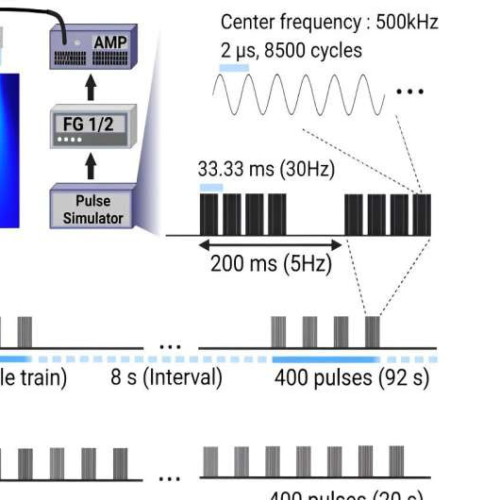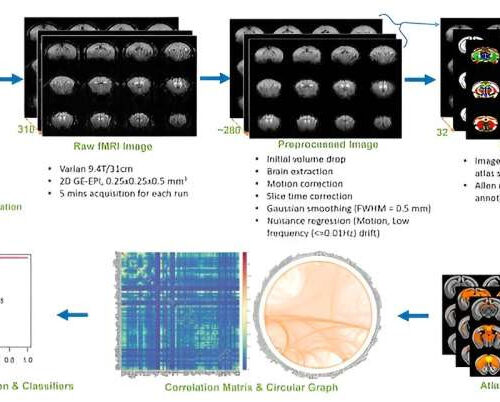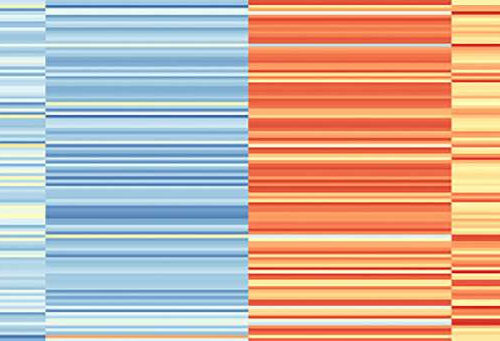by Institute for Basic Science This figure summarizes the outcomes following ultrasound stimulation. Low-intensity brainwave-like pattern ultrasound stimulation sequentially stimulates TRPA1 in astrocytes, leading to BEST1-dependent neurotransmitter secretion. This, in turn, stimulates adjacent neurons, inducing neural plasticity in the neurons. This process briefly describes how changes in cognitive functions associated with pattern-dependent memory and learning, as...
Tag: <span>brain disorder</span>
PS gene-editing shown to restore neural connections lost in brain disorder
by University of Minnesota Medical School Resting state functional magnetic resonance imaging data analysis pipeline. Three cohorts of mice were scanned in the 9.4 Tesla Varian MRI scanner with the bore size of 31 cm. FMRI raw data were acquired using the 2D gradient echo-based echo planer imaging (GE-EPI) sequence with a nominal spatial resolution of 0.25 × 0.25 × 0.5 mm3 and...
Can a human microglial atlas guide brain disorder research?
by The Mount Sinai Hospital Researchers at the Icahn School of Medicine at Mount Sinai analyzed the genetic activity of thousands human microglia, the brain’s immune cells. Their results support the idea that microglia may play critical roles some brain disease. Credit: Raj and de Witte labs, Mount Sinai, N.Y., N.Y. Certain subtle differences in...
New uses for CBD in genetic brain disorder
By Dr. Liji Thomas, MD Cannabidiol (CBD) has been much in the news for the right reasons, as it is being found to have a host of medical applications. Now a new study shows that this marijuana extract can help people with a rare brain condition called Angelman syndrome to improve behavioral traits and to...
Broken shuttle may interfere with learning in major brain disorders
Unable to carry signals based on sights and sounds to the genes that record memories, a broken shuttle protein may hinder learning in patients with intellectual disability, schizophrenia, and autism. Functional magnetic resonance imaging (fMRI) and other brain imaging technologies allow for the study of differences in brain activity in people diagnosed with schizophrenia. The...
The bassoon causing new brain disorder
IMAGE: MRI ANALYSIS OF A PATIENT WITH PSP-LIKE SYMPTOMS SHOWED SEVERE ATROPHY OF THE BILATERAL HIPPOCAMPUS, MESENCEPHALIC TEGMENTUM, CEREBELLUM, AND BRAINSTEM. Newly discovered gene mutations may help explain the cause of a disease that drastically impairs walking and thinking. Mutations have been found in the bassoon (BSN) gene, which is involved with the central nervous system,...
Binge-eating is a brain disorder which could be targeted with an anti-obesity pill, scientists claim
Immune cells that cause people to gorge on high-fat foods have been identified When mice were given an experimental drug to reduce the cells they ate 15% less Similar drug is in clinical trials that may help stop humans piling on the pounds Binge-eating is a brain disorder which could be targeted with an anti-obesity...



